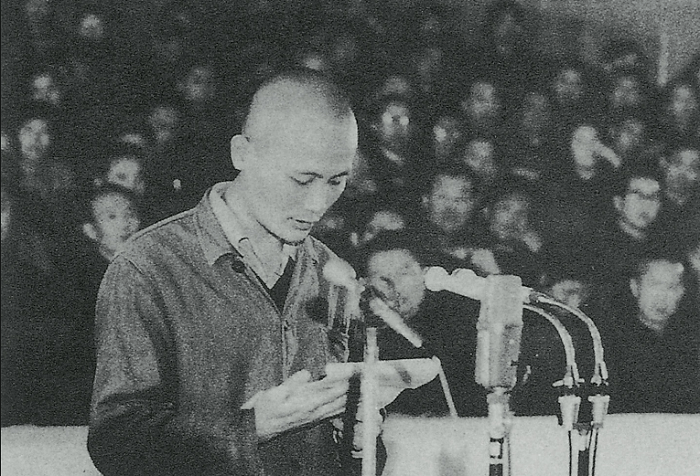1978's Discussion on the Standard of Truth set off a movement for ideological emancipation. After that point, the Xidan Democracy Wall in the center of Beijing became a place where the public could post big-character posters (manifestos, often hand-written on large pieces of paper) and express their opinions. It became a center for public opinion across the country. Similar Democracy Walls became highly popular across other big cities in China.
Big-character posters on the Xidan Democracy Wall touched on many issues: Complaints about past wrongful convictions; comments on Mao Zedong and the Cultural Revolution; even the desire for democracy. With Democracy Walls continuing to develop, mere handwriting could no longer satisfy the masses. As a result, discussion meetings related to the People's Democracy Walls were formed; and these gatherings also spawned civil publications and organizations. A wave of democracy had taken shape.
At first, Deng Xiaoping expressed his support for the development of the Democracy Walls. He once said: "Writing big-character posters is permitted by the constitution of our country. We have no right to deny or criticize the masses for promoting democracy and posting big-character posters. We must let the people vent when they are angry. Not every discussion by the people is well thought-out, and it’s impossible to ask for complete accuracy. This is nothing to be afraid of." However, as the Democracy Walls sparked mass petitions and protests, the high ranks of the Chinese Communist Party (CCP) began to feel deeply threatened.
On March 25, 1979, pro-democracy activist Wei Jingsheng posted a big-character poster titled "Do you want democracy or a new dictatorship". In it, he criticized Deng Xiaoping for taking the dictatorial line, and called on the people to be vigilant. The incident touched a nerve in the CCP Central Committee. They began to ban Democracy Walls and arrest key contributors. The authorities' actions sparked public debate; the masses argued that the Constitution grants the people the right to "big calls, big reach, big-character posters, and big debates" (commonly known as the Four Bigs). To this end, the CCP amended the constitution to abolish the Four Bigs at the third session of the Fifth National People's Congress in August 1980. From that point on, posting big-character posters was no longer legal.
References: "The World Turned Upside Down: A History of the Chinese Cultural Revolution"; "Political Struggles During the Age of Reform in China"; [魏京生基金會 ("Wei Jingsheng Foundation")(Chinese)] (https://weijingsheng.org/doc/cn/23.htm)
